 Petzlover
Petzlover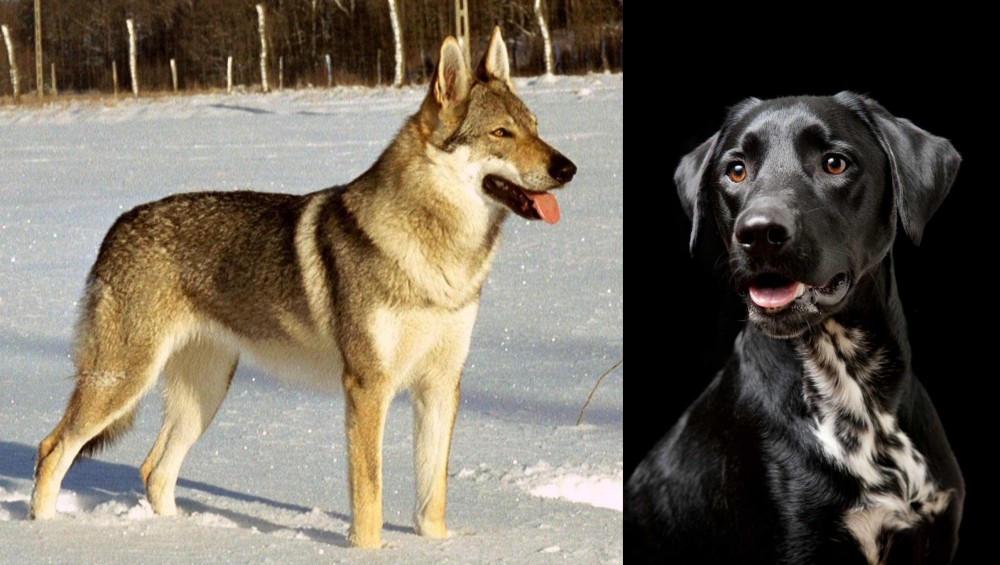 Czechoslovakian Wolfdog is originated from Czech Republic but Dalmador is originated from United States. Czechoslovakian Wolfdog may grow 7 cm / 3 inches higher than Dalmador. Czechoslovakian Wolfdog may weigh 6 kg / 13 pounds lesser than Dalmador. Both Czechoslovakian Wolfdog and Dalmador has almost same life span. Both Czechoslovakian Wolfdog and Dalmador has same litter size. Both Czechoslovakian Wolfdog and Dalmador requires Moderate Maintenance.
Czechoslovakian Wolfdog is originated from Czech Republic but Dalmador is originated from United States. Czechoslovakian Wolfdog may grow 7 cm / 3 inches higher than Dalmador. Czechoslovakian Wolfdog may weigh 6 kg / 13 pounds lesser than Dalmador. Both Czechoslovakian Wolfdog and Dalmador has almost same life span. Both Czechoslovakian Wolfdog and Dalmador has same litter size. Both Czechoslovakian Wolfdog and Dalmador requires Moderate Maintenance.
 The Czechoslovakian Wolfdog is a mix between a German Shepherd and a Carpathian wolf. In fact the Czechoslovakian Vlcak is another name for the Czechoslovakian Wolfdog and Vlcak is the Czech name for a German Shepard dog.
The Czechoslovakian Wolfdog is a mix between a German Shepherd and a Carpathian wolf. In fact the Czechoslovakian Vlcak is another name for the Czechoslovakian Wolfdog and Vlcak is the Czech name for a German Shepard dog.
When you translate the name, it means Czechoslovakian German Shepherd. There was a biological experiment that began in 1955 and these experimental breedings went on for a decade, so that in 1965 a plan was created for the breeding of this new breed.
It was in 1982 that the Czechoslovakian Vlcak was recognized as a national breed in the former Czechoslovakian Republic and recognized by the United Kennel Club in 2006.
This attractive, intelligent looking dog won the title of ‘World Champion’ at the World Dog Show in 1990 and in 1999, the breed met all criteria of the World Canine Organization, earning full recognition of the Czechoslovakian Wolfdog breed.
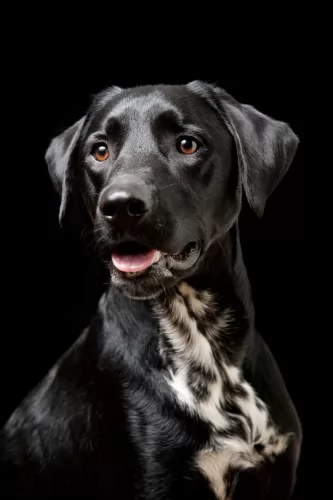 The Dalmador is a cross-breed – a mix between a Dalmation and a Labrador, and because it is a a fairly new breed you won’t find much information about the dog’s origins.
The Dalmador is a cross-breed – a mix between a Dalmation and a Labrador, and because it is a a fairly new breed you won’t find much information about the dog’s origins.
We do know that the Labrador originated in Canada and that the Dalmation comes from Croatia. Both these dog breeds have their own interesting histories. The Dalmador is a hybrid dog and isn’t a member of the American Kennel Club.
They started coming about from the 1980s when mixing one pure-breed dog with another became popular.
 The Czechoslovakian Wolfdog looks like a true German Shepherd/Wolf mix with his erect ears, bushy tail and straight, muscular legs.
The Czechoslovakian Wolfdog looks like a true German Shepherd/Wolf mix with his erect ears, bushy tail and straight, muscular legs.
The eyes of the dog are slanted and brown. He stands at about 65cm in height and weighs up to 26kg. The thick coat of the dog is greyish in color but other colors come in as well such as white, cream, black, silver and yellow - all wolf colors. In fact the density of the coat as well as the color changes according to the seasons.
The coat is particularly thick in the Winter, thinning out in the Summer. The coat color may be yellow-gray or silver-gray.
Having a pet which has some wild animal mix can be risky and dangerous. Adding wild animal DNA means that you can get some of the behavior of the wild animal added in and this can be asking for trouble.
When the Czechoslovakian Wolfdog turns on a person, he will be blamed and put down, whereas it is the stupidity of the human to breed such dogs and bring them into their homes in the first place. You need to be careful with children in the home, especially if they don’t know how to treat a dog with respect.
Nonetheless the Czechoslovakian Wolfdog is able to develop a deep relationship with his owner. He is a dog who, when training and socialized, can gets on well with his human family as well as with other pets in the family.
He has got other excellent characteristics such as being fearless and courageous. He is intelligent and learns easily.
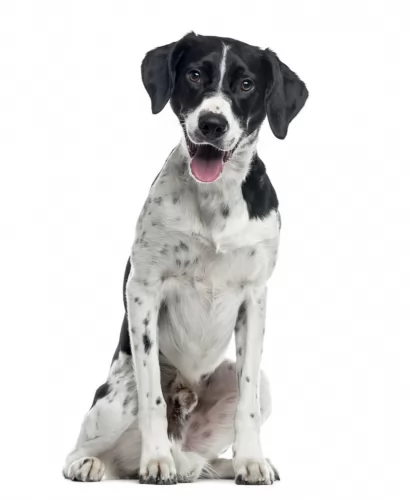 The Dalmador is a cross breed dog which comes from crossing the Labrador Retriever with a Dalmatian. The result is a muscular, well proportioned body.He has floppy ears and a long tail.
The Dalmador is a cross breed dog which comes from crossing the Labrador Retriever with a Dalmatian. The result is a muscular, well proportioned body.He has floppy ears and a long tail.
He is medium to large sized dog and can stand up to 58cm in height and weigh between 25 and 32kg. No two dogs look the same and some dogs gravitate more towards the one breed while others toward the other.
Most Dalmadors have the spotted coat, although the coat could have very visible spots or maybe just a few dots on the fur. Then again there are some Dalmadors where the coat is more of a solid color in brown or black or cream with some white patches. The double coat is short and dense and he is quite a heavy shedder.
The Dalmador is a gentle, friendly dog, making him a great family pet. You can’t really say exactly what temperament your Dalmador will have as he could inherit either the Dalmatian’s more aloof nature or he could inherit the friendly character of the Labrador.
He is quite likely to be even-tempered and is amicable with other pets in the home. He is alert too and this makes him a good watchdog. Because the Dalmador is the hybrid of two active, alert, intelligent breeds you can expect a dog which for some will be quite a handful. It is why training and socialization can be excellent for the Dalmador as it will calm him down, turning him into an obedient dog who comes and sits when told.
If you’re looking for an energetic, active and highly social dog, the Dalmador will suit an active family that can join in with all his high jinks.
 The beautiful Czechoslavakian Wolfdog resembles a wolf and in many of these dogs, their characteristics are wolf-like too. The dog is confident and independent, but it also able to form good relationships with his human family.
The beautiful Czechoslavakian Wolfdog resembles a wolf and in many of these dogs, their characteristics are wolf-like too. The dog is confident and independent, but it also able to form good relationships with his human family.
Many people thrill at the idea of having a pet which has a wild side to him, but there is a price to pay for having such a pet in your home. Their wild side can suddenly come to the fore, with dangerous consequences.
There are so many dog breeds to choose from that surely it isn’t necessary to start tampering with animals from the wild?
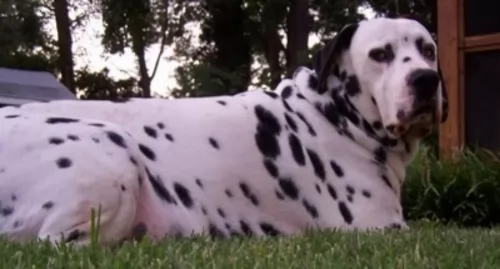 The wonderful Dalmador is such a easy-going, cheerful dog full of surprises really, as you never know which dominant traits he will inherit from either of the two dogs involved in his making.
The wonderful Dalmador is such a easy-going, cheerful dog full of surprises really, as you never know which dominant traits he will inherit from either of the two dogs involved in his making.
Friendly and social, he loves his human family and is totally loyal and loving toward them. Even tempered and faithful, if you’re looking for a wonderful 4-legged friend and companion, the Dalmador promises to make you a splendid pet.
 Your Czechoslovakian Wolfdog is a healthy dog who with good health care, can reach the age of 12 to 15 years. However, it is good to be forewarned about some dog sicknesses that your dog might get and which could be detrimental to your dog’s quality of life.
Your Czechoslovakian Wolfdog is a healthy dog who with good health care, can reach the age of 12 to 15 years. However, it is good to be forewarned about some dog sicknesses that your dog might get and which could be detrimental to your dog’s quality of life.
This disease comes about when the ball and socket joint at the hip doesn’t form properly. The bones rub and chafe when the dog moves and the condition just gets worse as time goes on. Your dog can actually end up with arthritis, and worse, become lame.
This is a progressive deterioration of the spinal cord which causes lameness in your pet’s hind legs. It is incurable and can be the end of your pet. The exact cause of this tragic illness is unknown.
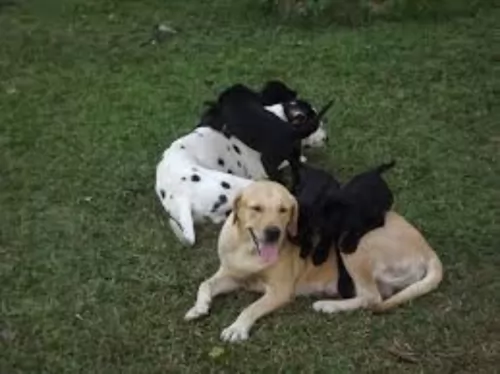 The Dalmador is a hybrid dog and they don’t experience the same health issues that the pure bred dog contends with. The Dalmador has a life expectancy of 10 to 14 years and he can reach this age if you give him all the doggy care he deserves as a 4-legged member of your family.
The Dalmador is a hybrid dog and they don’t experience the same health issues that the pure bred dog contends with. The Dalmador has a life expectancy of 10 to 14 years and he can reach this age if you give him all the doggy care he deserves as a 4-legged member of your family.
Apart from a common dog ailment – hip dysplasia, bloat and obesity are also common problems for your dog.
Bloat is a serious health condition that can actually be fatal because its a twisted stomach where trapped gas puts pressure on the diaphragm.
You will notice the swollen stomach of your pet. Larger breeds are more prone to suffer from bloat because of being deep-chested. Also known as gastric dilatation-volvulus, a vet will need to intervene with this ailment as it can be life-threatening.
 Vlcaks have been specifically bred for stamina and if you neglect to exercise him, he’ll become bored and frustrated and possibly destructive and aggressive. He must be trained and he must be constantly provided with lots of exercise and activities.
Vlcaks have been specifically bred for stamina and if you neglect to exercise him, he’ll become bored and frustrated and possibly destructive and aggressive. He must be trained and he must be constantly provided with lots of exercise and activities.
Because of the wolf side of this dog, Czechoslovakian Wolfdogs have a high prey drive, so he will need to be trained and socialized if you want him to get along with your other pets in the home.
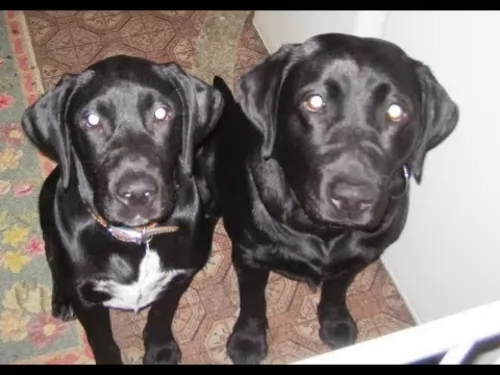 The Dalmador is a medium to large dog so you want to be feeding him one or two bowls of food a day. You want to be giving your Dalmador top-quality food to ensure good health. The lower quality foods are inclined to have ingredients in them that aren’t good for your pet.
The Dalmador is a medium to large dog so you want to be feeding him one or two bowls of food a day. You want to be giving your Dalmador top-quality food to ensure good health. The lower quality foods are inclined to have ingredients in them that aren’t good for your pet.
Always try to include some home-made food into your pet’s diet such as cooked brown rice, cooked chicken and vegetables. You can mix this into some of his dry kibble. It is important to include some raw meat into his diet from time to time as well.
Clean water must be constantly available. Without good quality food and water, you jeopardize the health of your pet.
He isn’t going to require much maintenance so a good brush twice a week will rid him of loose hairs and keep his coat shiny and glossy.
Other things to check regularly are his ears and to brush his teeth 2 or 3 times a week. Don’t neglect giving him a good amount of exercise too.